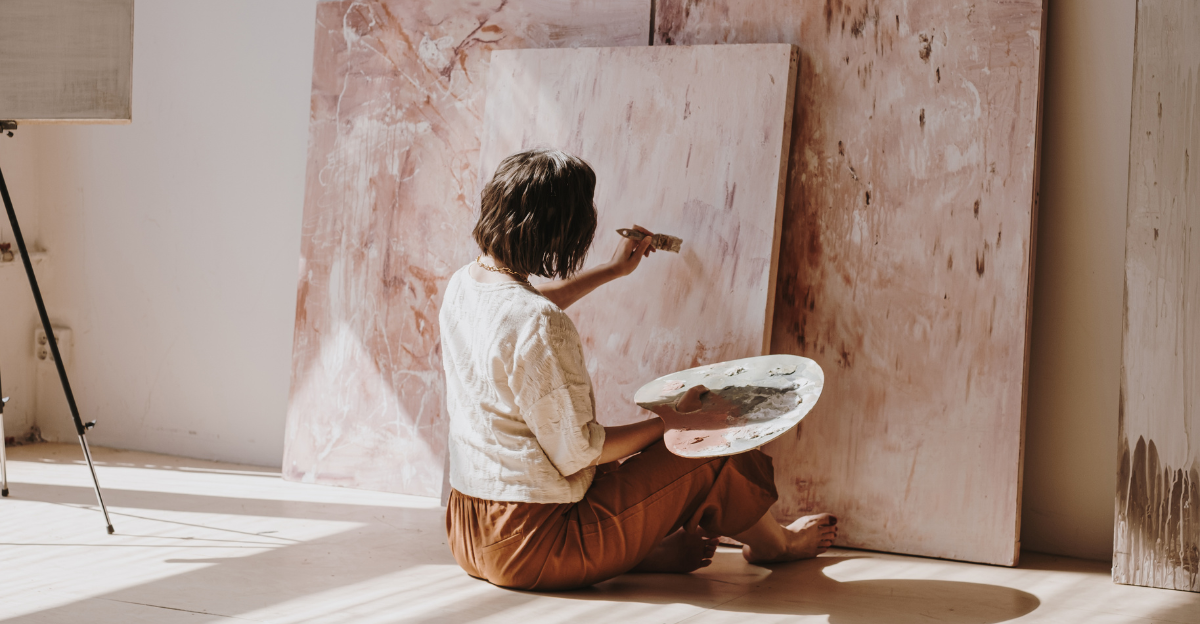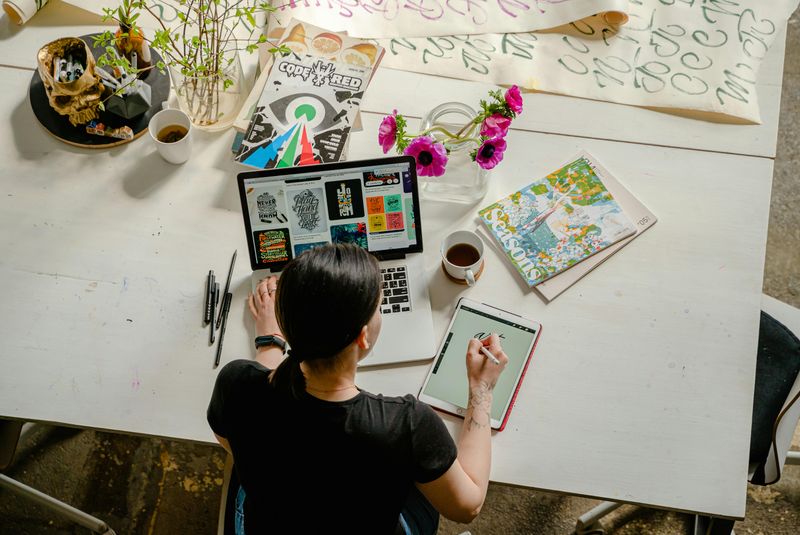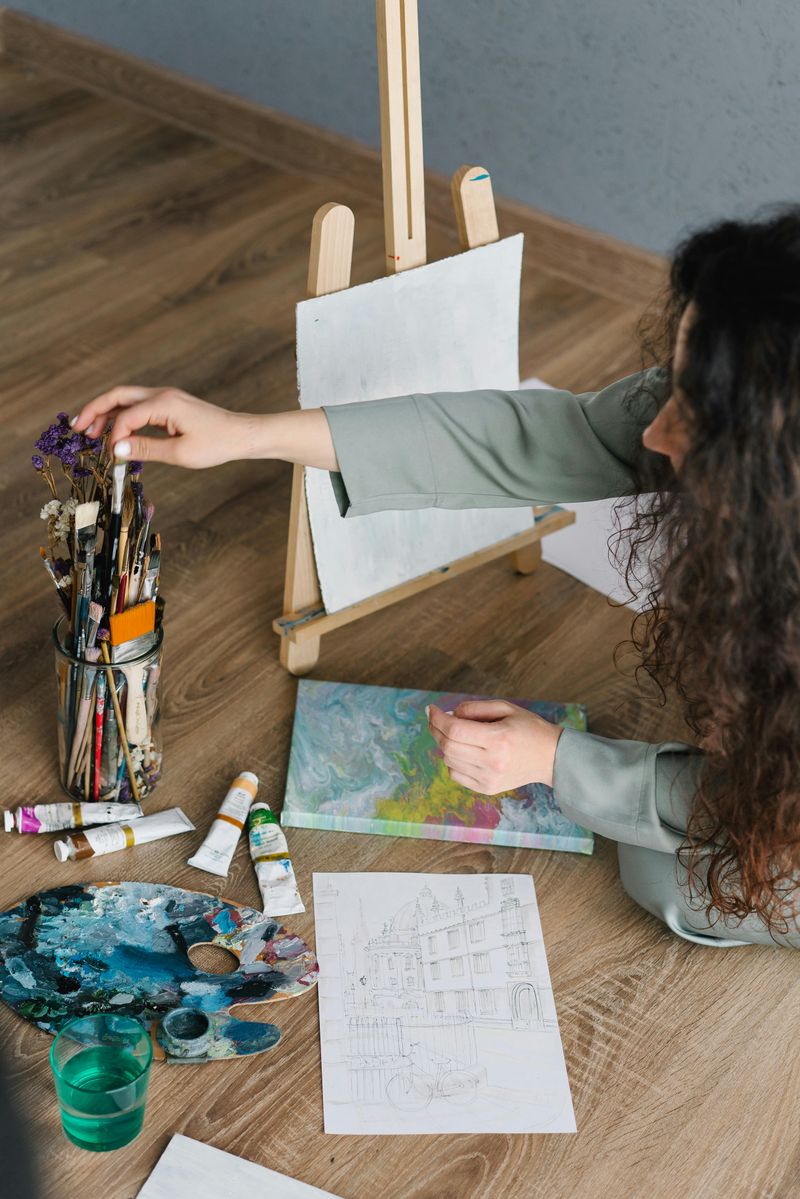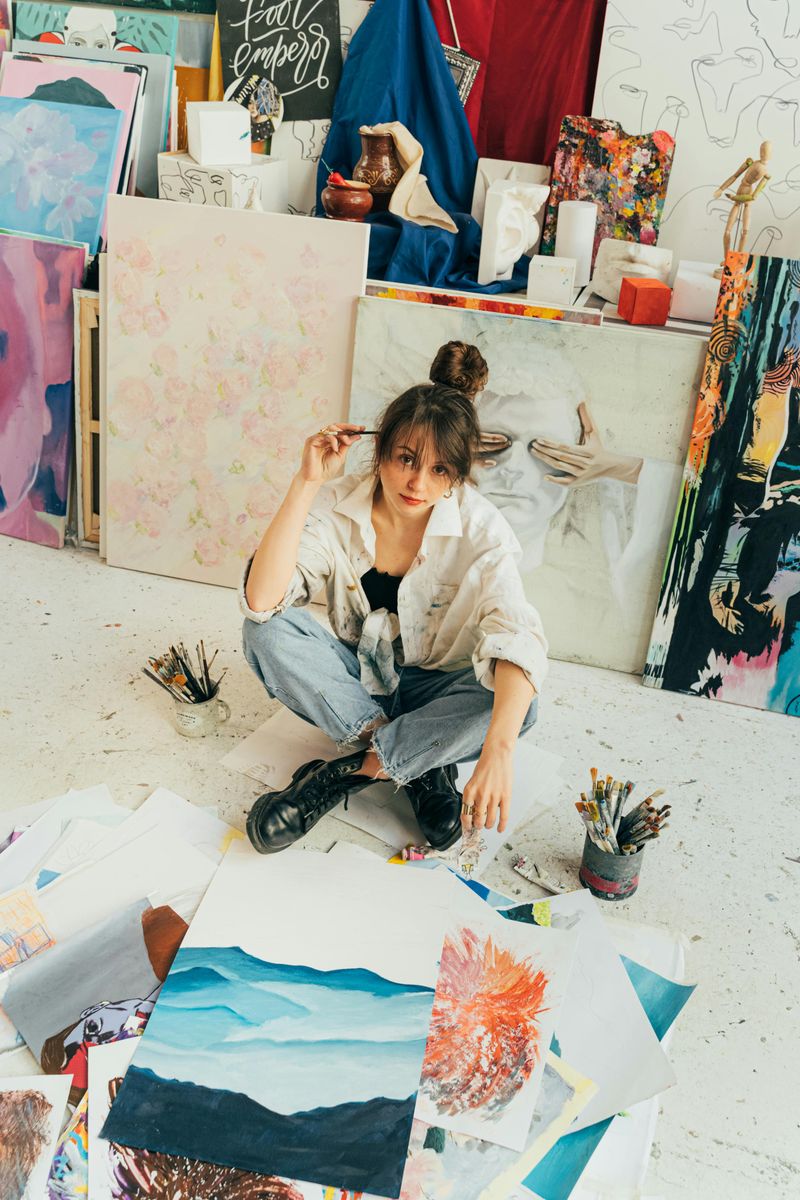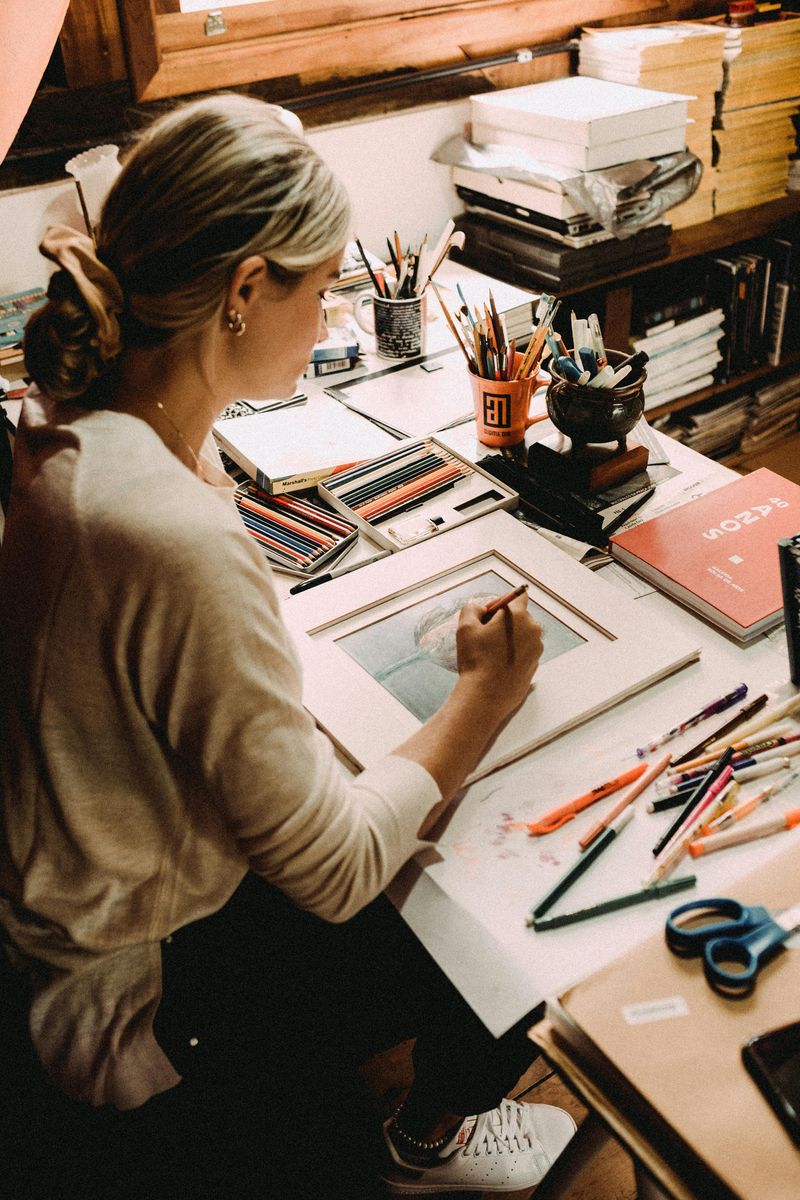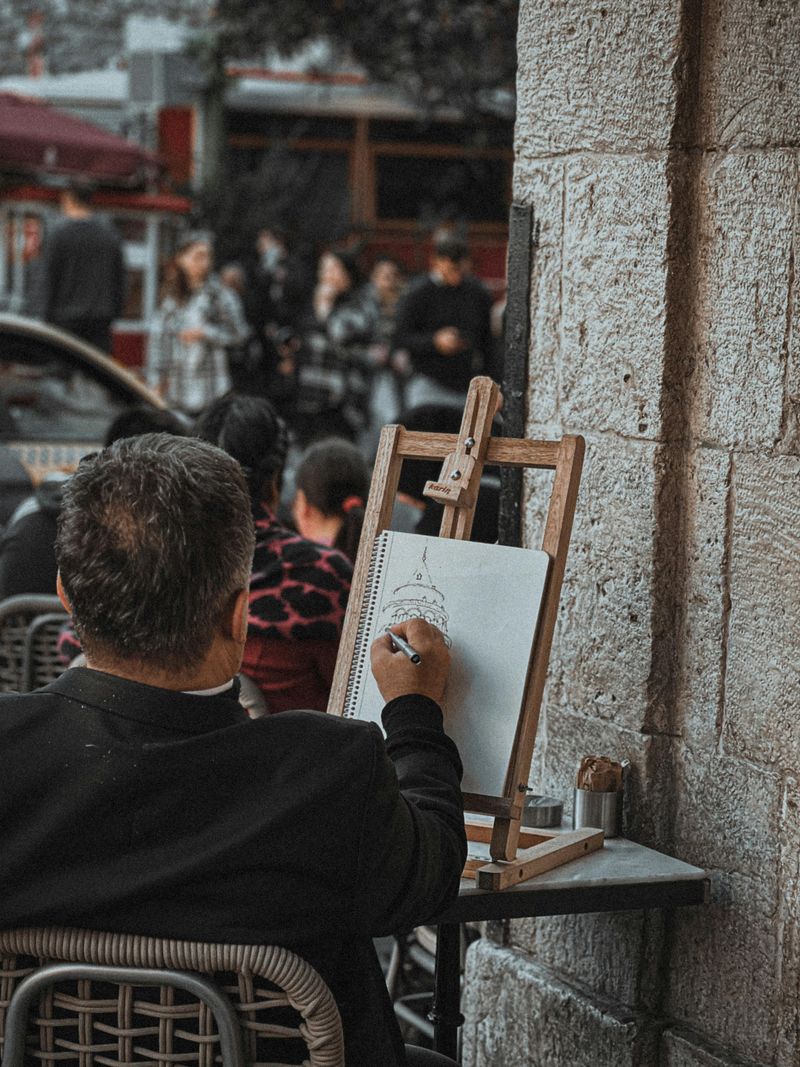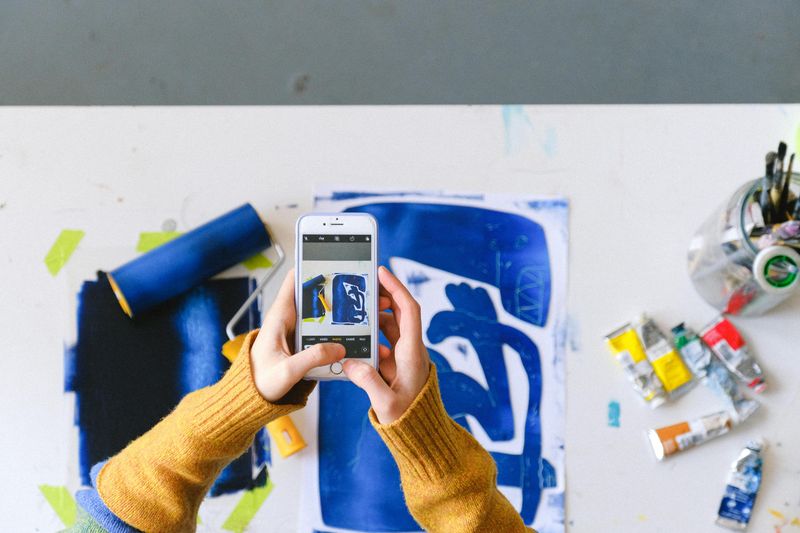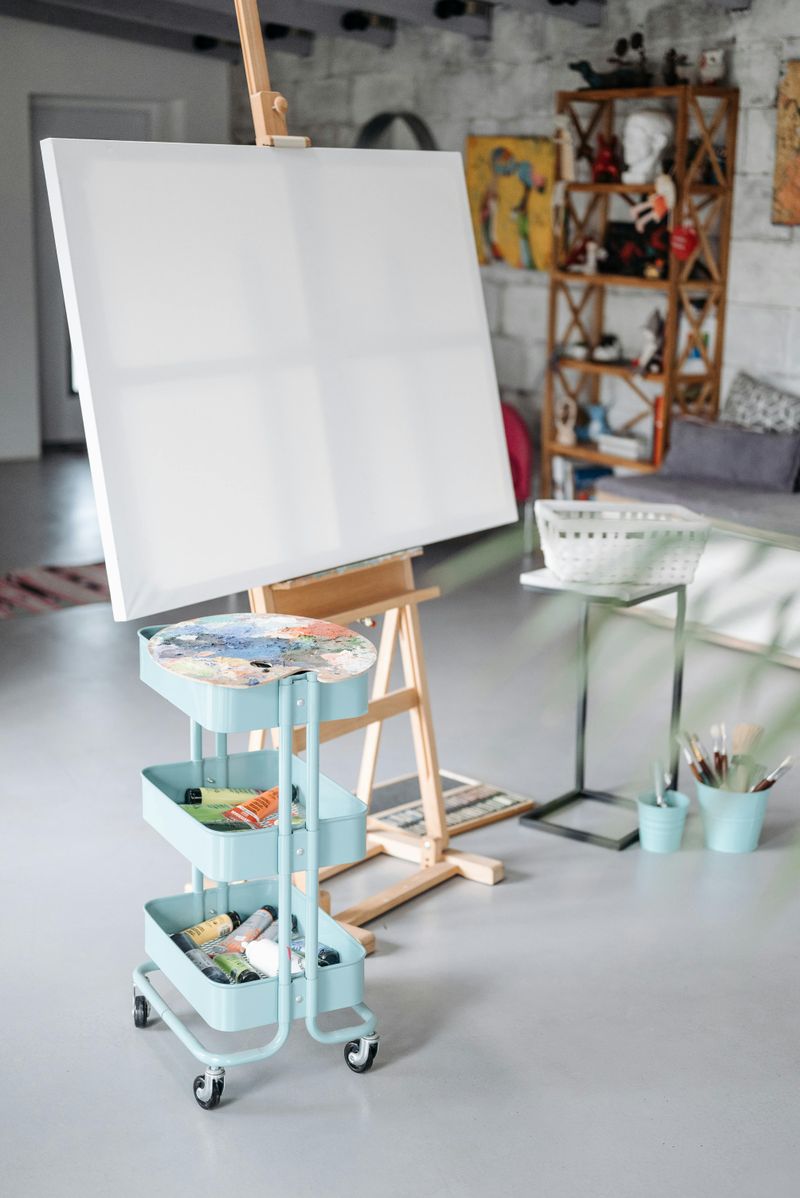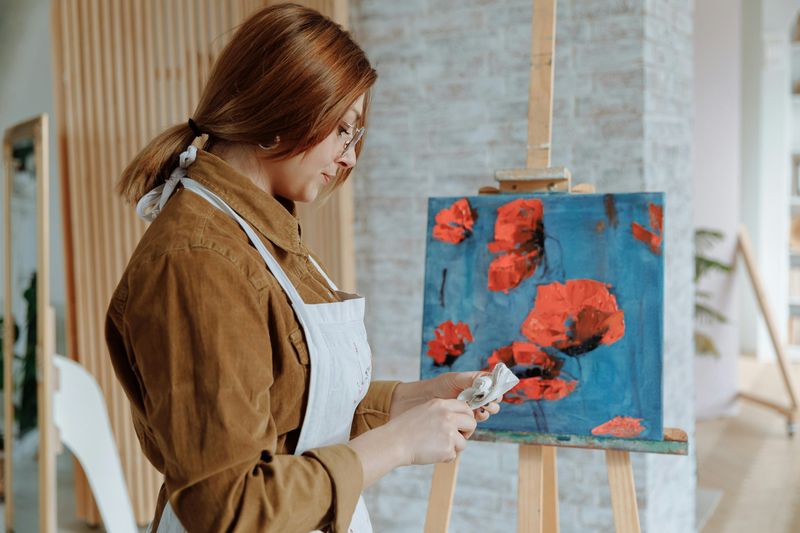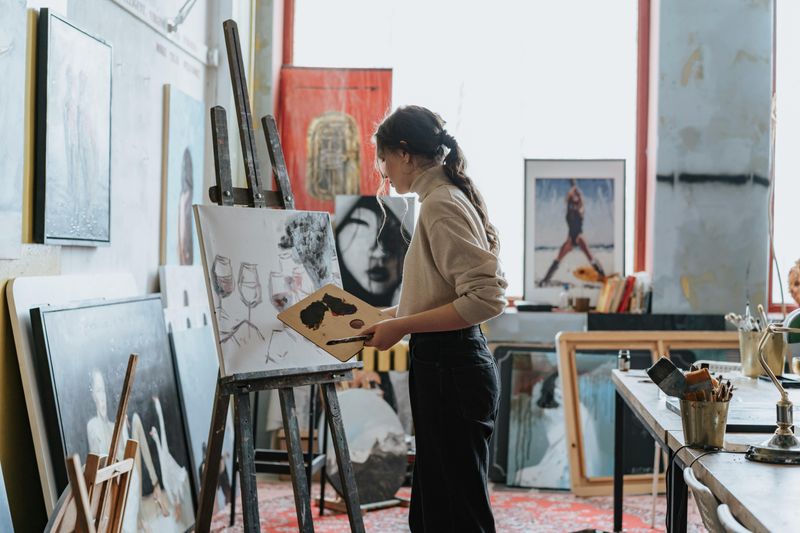Have you ever felt like your creative spark just disappeared? Maybe you used to paint, write, or make music, but life got busy and you stepped away. Now when you try to return, something feels stuck. The good news is that creative blocks are completely normal, and they can be broken through no matter how long you’ve been away from your craft.
1. Perfectionism
Wanting everything to be flawless can actually freeze your creativity in its tracks. When you demand perfection from yourself, you end up creating nothing at all because nothing feels good enough. This mindset makes you erase, redo, and overthink until the joy of creating disappears completely.
Instead of aiming for perfect, aim for done. Give yourself permission to make messy first drafts and wonky sketches. Remember that every master artist has created thousands of imperfect pieces.
Try setting a timer and creating something without editing or fixing it. You might surprise yourself with what flows out when you stop judging every brushstroke or word.
2. Fear of Failure
What if it turns out terrible? That question stops more creative projects than any other obstacle. Fear of failure makes you imagine worst-case scenarios where people laugh at your work or you discover you have no talent left.
Here’s the truth: failure is just feedback. Every failed attempt teaches you something valuable about your process and preferences. The artists you admire have failed countless times, but they kept going anyway.
Start small with low-stakes projects where failure doesn’t matter. Create something just for yourself with zero intention of showing anyone. Once you realize failure won’t destroy you, the fear loses its power over your creative process.
3. Self-Doubt
That voice in your head whispers nasty things. It tells you that you’re not talented enough, that you’ve lost your skills, or that you never had them to begin with. Self-doubt makes you question every creative decision and compare your rough beginnings to everyone else’s finished masterpieces.
Recognize that doubt is a liar. Your skills might be rusty, but they’re still there waiting to be polished. Everyone experiences self-doubt, even professionals with decades of experience.
Keep a collection of past work that makes you proud. When doubt creeps in, look at what you’ve accomplished before and remind yourself that you’re capable of creating meaningful things again.
4. Overwhelm
Too many ideas, too many possibilities, too many things you want to try all at once. Overwhelm happens when you look at the enormous mountain of everything you could create and feel paralyzed by the options. Your brain short-circuits trying to decide where to start.
Break things down into tiny, manageable pieces. Instead of thinking about finishing an entire novel, focus on writing one paragraph. Rather than planning a complete art series, sketch one simple object.
Clear your workspace of distractions and choose just one small task. Complete it before moving to the next. Small wins build momentum and confidence, gradually shrinking that overwhelming mountain into achievable hills.
5. Lack of Time
Between work, family, and everyday responsibilities, finding time to create feels impossible. You tell yourself you’ll get back to your creative work when things calm down, but that magical free time never arrives. Days turn into weeks, weeks into years.
Creativity doesn’t require hours of uninterrupted time. Even ten minutes counts. You can sketch during lunch breaks, write a few sentences before bed, or brainstorm ideas while commuting.
Schedule creativity like you would any important appointment. Protect that time fiercely, even if it’s just fifteen minutes twice a week. Consistency matters more than duration when rebuilding a creative practice after time away.
6. Comparison
Scrolling through social media shows you an endless parade of incredible creative work. Everyone else seems more talented, more productive, and more successful. You compare your messy beginning stages to their polished final products and feel like giving up.
Remember that social media is a highlight reel, not reality. You’re seeing people’s best work after hours of practice and editing. Nobody posts their failures, frustrations, or ugly first drafts.
Limit your exposure to comparison triggers. Unfollow accounts that make you feel bad about yourself. Focus on your own growth by comparing your current work only to your past work, celebrating every bit of progress you make along your unique creative journey.
7. Procrastination
You’ll start tomorrow. Or next weekend. Or after you finish organizing your supplies, researching techniques, and watching just a few more tutorial videos. Procrastination disguises itself as preparation, but really it’s fear wearing a clever mask.
Action creates motivation, not the other way around. Waiting until you feel motivated enough to start means waiting forever. The secret is beginning before you feel ready, even when it feels uncomfortable.
Use the two-minute rule: commit to working on your creative project for just two minutes. Often, starting is the hardest part, and once you begin, you’ll naturally continue longer. Remove barriers by keeping your supplies visible and easily accessible.
8. Burnout
Maybe you pushed too hard before stepping away. Creative burnout leaves you feeling exhausted, empty, and disconnected from the joy that making things used to bring. Even thinking about your creative work feels draining instead of exciting.
Recovery requires genuine rest, not just switching activities. Give yourself permission to step away completely without guilt. Your creativity needs time to refill like a well that’s run dry.
When you’re ready to return, start incredibly gently. Create without pressure or goals, just for the simple pleasure of making something. Rediscover what made you fall in love with your craft originally by exploring it with fresh, playful curiosity instead of obligation.
9. Routine Stagnation
Doing the same thing the same way in the same place eventually drains all the excitement from creativity. Your routine has become so predictable that your brain goes on autopilot. Nothing feels fresh or inspiring anymore because you’re stuck in a comfortable but uninspiring rut.
Shake things up deliberately. Change your workspace, try different materials, or work at unusual times. If you always work alone, join a group. If you always follow plans, try improvising.
Introduce creative constraints that force new thinking. Paint with only three colors, write without using the letter E, or create something using materials you’ve never tried before. Limitations spark innovation by making your brain find new solutions.
10. External Pressure
Family members ask when you’ll finish that project. Friends expect you to create things for them. Maybe you feel pressure to turn your hobby into a profitable business. External expectations transform joyful creativity into stressful obligation, crushing the spontaneous fun that makes creating worthwhile.
Set clear boundaries around your creative practice. You don’t owe anyone explanations, finished products, or monetization. Your creativity exists for your own fulfillment first and foremost.
Learn to say no without guilt. Create a separate space or time that’s protected from outside demands. When you remove external pressure, you rediscover the internal motivation that originally drew you to creative work and sustained your passion through earlier years.
11. Lack of Inspiration
Your idea well has dried up completely. Nothing sparks your interest or imagination. You sit down to create and your mind goes blank, offering nothing but static where inspiration used to flow freely and abundantly.
Inspiration is overrated anyway. Professionals create on schedule whether inspiration shows up or not. Discipline and routine generate more finished work than waiting for lightning strikes of motivation.
Fill your creative well by consuming art in different forms. Visit museums, read books outside your usual genres, take nature walks, or have conversations with interesting people. New experiences and inputs naturally generate new ideas when you give your brain diverse material to work with.
12. Imposter Syndrome
You feel like a fraud. Even when you create good work, you believe it’s just luck or that you’ve somehow fooled people. Imposter syndrome makes you think you don’t deserve to call yourself creative or that you’ll be exposed as talentless any moment now.
Recognize that imposter syndrome often affects capable people most. If you were truly untalented, you probably wouldn’t worry about it this much. Your fear proves you care about quality and growth.
Keep evidence of your competence visible. Save compliments, positive feedback, and examples of work you’re proud of. When imposter feelings strike, review this evidence objectively. You’ve earned your place at the creative table through effort and dedication.
13. Fear of Success
Success sounds wonderful until you consider what it might actually mean. What if people expect more from you? What if you can’t repeat your success? What if visibility brings criticism or changes your relationships? Sometimes staying small feels safer than risking the unknown consequences of achievement.
Understand that success doesn’t have to look like fame or fortune. You get to define what creative success means for you personally. Maybe it’s simply finishing projects or reconnecting with your creative self.
Take success one small step at a time. You don’t have to share your work publicly, enter competitions, or pursue recognition unless you want to. Focus on the process and joy of creating rather than outcomes beyond your control.
